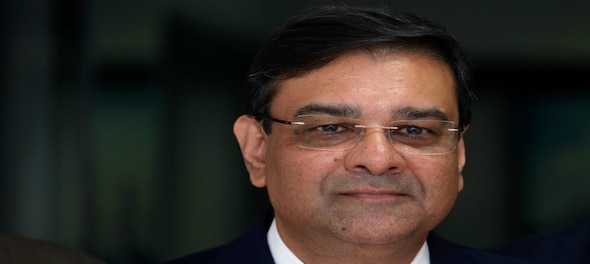
Former Reserve Bank of India Governor Urjit Patel has attacked the UPA government for allowing the build-up of large non-performing assets at public sector banks (PSBs) by failing to create risk controls or ensuring adequate management.
"The government is responsible for ensuring adequate capital for banks that are under its ambit on a durable/sustainable basis. The dominant owner pre-2014 didn’t question risk controls in government banks even as it received significant dividends," Patel has written in a to-be-released book titled Overdraft - Saving the Indian Saver, as revealed in a note on the publisher's website.
"Several government banks did not have senior management in place, and governance suffered. This is a perennial shortcoming on account of bureaucratic inertia and political meddling," the former RBI governor added.
Appointed RBI Governor in September 2016, Patel took over at a time when bank NPAs had started coming to the fore. Gross NPAs stood at 3.8 percent in FY14 before rising every year to peak at 10.5 percent in FY18. They fell to 9.3 percent in FY19 but are expected to spike again this fiscal because of the COVID-19 crisis.
The recognition of NPAs began when the RBI, under Patel's predecessor Raghuram Rajan, created a database of large depositors (CRILC) in June 2014 as began a stringent programme to identify bad loans (asset quality review) a year later. Patel was the RBI Deputy Governor.
In the book, Patel also questioned the RBI's failure in identifying bad loans before 2014.
The RBI "failed to challenge assumptions through, for example, more rigorous stress-test scenarios at bank level, as well as sensitivity analysis on (demand) assumptions, and sector (policy) risks," Patel writes in the book, excerpts of which recently appeared in the Hindustan Times.
Had the central bank identified the build-up of risks, it could have tightened lending norms by, for instance, increasing risk weights allotted to various sectors.
A note on the publisher's website makes a reference to Patel's 9 Rs strategy, "which would have saved our savings, rescued our banks and protected them from unscrupulous racketeers" but does not go into detail.
But at a speech given at Stanford University last year, Patel had talked about 8 Rs, revolving around recognition, resolution, reinforcement of regulation, and recapitalisation. While most of these were successful, Patel said the last 'R' -- reform -- could not be implemented.
Since then, the government has merged several small PSBs with larger ones -- from 27 in 2014 to 12 now. Reuters today reported quoting sources that it plans to bring this number down to 5 by selling off smaller non-performing PSBs.
The note on the publisher's website also says "Urjit Patel would have cleared the NPA mess if he hadn’t been prevented" but does not elaborate.
Patel resigned midway as the RBI Governor, citing personal reasons, though it was widely speculated that one reason was he disagreed with the government on the issue of parting with the central bank's reserves.
He was recently appointed as Chairman of the National Institute of Public Finance and Policy (NIPFP).
Urjit Patel's new book Overdraft releases on July 24.
First Published: Jul 20, 2020 10:11 PM IST
Check out our in-depth Market Coverage, Business News & get real-time Stock Market Updates on CNBC-TV18. Also, Watch our channels CNBC-TV18, CNBC Awaaz and CNBC Bajar Live on-the-go!


AAP leaders say last chance to save democracy; thank SC on granting interim bail to Kejriwal
May 10, 2024 4:19 PM
₹1 lakh to each woman, ₹2 lakh if you have two wives, says Congress leader
May 10, 2024 2:44 PM
OPINION | Can markets predict elections? Applying the 2019 test
May 10, 2024 12:49 PM
Colour-coordinated theme-based polling booths set up in Srinagar
May 10, 2024 9:26 AM

